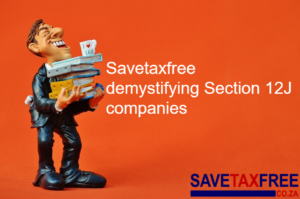Still early days, but enthusiasm over TFSAs is steadily gaining momentum
Related Articles
Nonhlanhla Kunene | 24 June
Though some have hailed them as best thing to happen on the South African investment scene, the level of enthusiasm among service providers in offering the product has been mixed – some bluntly saying it’s not worth their time or effort.
Client take-up so far to those that do offer it though, has been especially good, as our latest tax-free survey shows. The general consensus among providers is that tax-free savings are an invaluable tool for long-term asset accumulation.
Having been launched in March last year, tax-free savings are still in their infancy, but are they having the desired impact? And how has the industry experienced them so far?
Pieter Hugo, MD of Prudential Unit Trusts, says his firm’s experience with its offering of five Prudential tax-free unit trusts has been very positive. Take-up since launching in March 2015 has been good, particularly with the multi-asset class funds, the Prudential Balanced and Inflation Plus funds. Hugo says about 75% of investors have invested the maximum R30,000 allowed for the year.
Sygnia Asset Management also saw many investors take up the full R30,000 almost immediately, says retail manager Lorna Knoetze. “At the end of the 2016 tax year we had a very positive response to the product with entire families investing the full allowance per person.” Knoetze believes the product’s success lies in Sygnia’s extensive range of index tracker funds across all asset classes and low costs.
While take-up has been positive, the initial idea behind tax-free savings was to encourage a greater savings culture among South Africans, to shift their mind sets from a culture of excessive spending. Is this starting to have an effect?
Christo Davel, CEO of 22seven, believes that while tax-free savings have had a positive effect, they’re definitely no silver bullet. He says for some wealthy investors R30,000 a year may seem like a small amount, and therefore a deterrent. Davel hopes government will gradually increase the limit over time, but does acknowledge that the challenge of incentivising people to save is a global one.
However, he says the major challenge for most people is finding R30,000 a year to invest. “Sometimes people don’t know where or how, but in most cases there is some money hiding. Once you know where it is, then you can think about investing.”
Knoetze feels that more still needs to be done to encourage the greater population to save and to experience the value of the product. She believes this can be achieved through better advertising and communication that clearly outlines the benefits of the product to the smaller investor.
For Hugo, it’s still early days. “Individuals don’t change habits in a year,” he says. From Prudential’s perspective, the tax-free products have certainly had some impact, to the extent that they have encouraged additional savings through offering lower-cost products and tax breaks, incentivising people to save more. He believes they’ve established a good base upon which to build.
He does, however, feel that while a long-term mind set is also encouraged through the structure, it will take time for investors to see the impact of compound interest, and the effect of zero tax improving this. “Once clients start to experience this, the momentum could build.”
Changing the country’s savings culture, however, requires a long-term strategy and that, says Hugo, will take time. As an example he refers to Australia’s superannuation, a policy to incentivise retirement savings with tax and other benefits, introduced in the early 1980s. He says it took a good 10 to 15 years for Australia to finally have success with the policy.
What about the issue of easy access to the funds in a tax-free account? Some believe this works against the creation of a long-term mind set because every time they draw cash out, it eats into the lifetime limit of R500,000.
“The issue of access is a problem facing the industry as a whole and is not limited to TFSAs,” says Davel, who reasons that it is an issue the industry has to be smarter about to manage more effectively, through effective communication and education. “Keep it simple and don’t complicate things with complicated language.”
Hugo says Prudential has not experienced the problem of withdrawals. Only a small percentage of clients had redeemed their entire account and only a handful had made partial redemptions – a much lower rate than that experienced in Prudential’s regular unit trusts. He feels it may suggest a longer-term attitude towards savings, but says a one-year period is too short to draw any meaningful conclusions.
Knoetze believes the reason Sygnia has not experienced significant outflows is due to the fact that many of its investors are families with small children who have mostly taken a long-term stance, as the funds were clearly targeted towards long-term goals such as future study costs.
In Davel’s view, effective communication can be used to articulate, in simple terms, the benefits of tax-free savings. He feels education should be continuous for the industry. With constant education, he says, people can start to understand what the best vehicles are for their investments goals and the impact that the different time frames and risk levels would have on their ability to successfully realise these goals.
Knoetze believes that although a tax-free account is easily accessible, if clients are properly informed of the benefits they soon realise how to maximise the opportunity for compound growth.
However, she does not believe the industry is reaching the correct sector of the savings community. “Investors who are constantly saving know the value of this product and do not treat the product as an emergency fund. We have to reach to sectors of the community who are not aware of the value of this product. Savings should be encouraged at a young age and through proper education and correct marketing initiatives. I do believe that we can change the mind set of the South African public.”
Hugo says education that emphasizes that these are long-term products is important. Having done this from the start with their own products, he believes the low redemption rate the company has experienced could indicate its emphasis on education is working.
He believes that advertising and marketing should stress the long-term benefits, but also notes that the amount of money invested in these products over the past year suggests that the flexibility of access appears to be valued by investors. “Perhaps that money would not have been saved at all had the flexibility or immediate access not been a feature. Obviously, the message around long-term investments is not a new one, but one that needs to be emphasised especially for tax-free savings products.”






